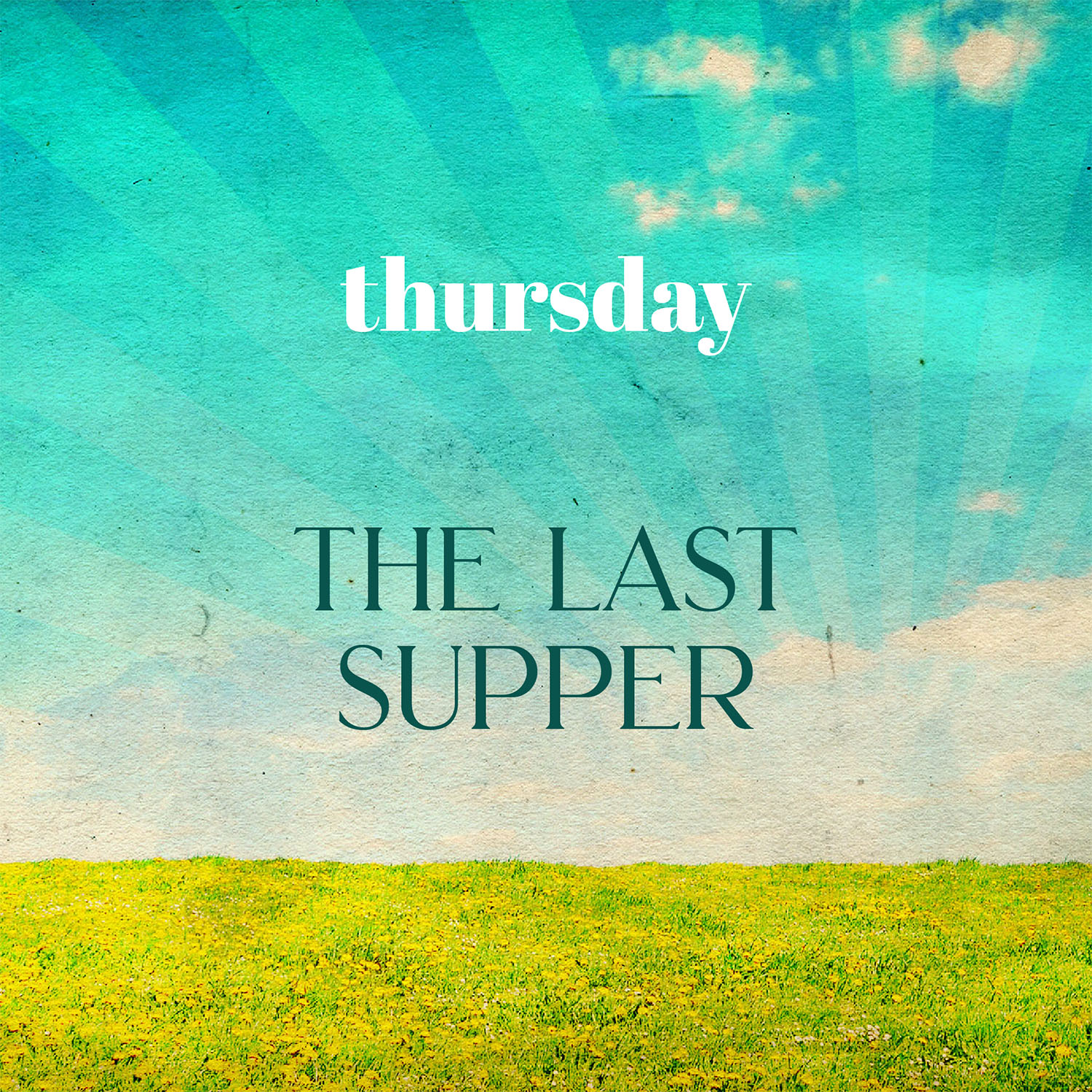Holy Week: Thursday, April 14
Have you ever experienced both sadness and joy at the same time? Many of us feel this way when saying goodbye to a friend that is moving away. We are simultaneously sorrowful they must leave, but also joyful for their new opportunity. Paul described this feeling well in 2 Corinthians 6:10 when he says that servants of God are “sorrowful, yet always rejoicing.” A lot of Holy Week is like that too. During these days, believers are both sad and joyful as we remind ourselves of all Jesus accomplished. Today, Maundy Thursday, is the day where we remember the Last Supper.
Communion, for many churches, is something done because of tradition. We share some bread and say some words, but the reasons behind these things are often vague at best. Thankfully, Holy Week lets us remind ourselves just how significant the Last Supper is and what it teaches us about Jesus. So, when we take communion, or share a meal together this week, let us look to what Jesus said during His last Passover meal with His disciples.
Jesus said “This is my body” when He broke bread and gave it to His friends (Matthew 26:26, Mark 14:22, Luke 22:19). He did this because He himself was the bread of life (John 6:35). Breaking bread represented His body becoming the perfect sacrifice. On the cross, Jesus would also be broken by the weight of sin and death. In sharing bread with the disciples, He gives them a chance to partake symbolically in his gift. He wants them to understand that He will sustain them. It is no different when we break bread today. We too are being offered the bread of life, the gift of grace through Jesus Christ, and the opportunity to enter into a personal relationship with Him. Remembering this good news helps to bring joy in the midst of sorrow.
Next, Jesus offers up a cup of wine, saying “This is my blood of the covenant” (Matthew 26:27-28, Mark 14:24, Luke 22:20). When the prophet Jeremiah spoke of God making a “new covenant” with His people, he was referring to these moments (Jeremiah 31:31-34). This meal would be the last one under the old covenant (where God requires animal sacrifices to atone for sin). For before the week ended, sacrifices and Passover lambs would no longer be required. Jesus, the lamb of God, was about to die for the sins of the world (Exodus 24:8). It would be His blood that paid the penalty. It would be His death that atoned for our wrongs, once and for all.
So, it’s okay to be sorrowful when remembering the Last Supper or when taking communion. This meal led up to the most painful, sinful, and sorrowful event in the history of the world. Those hours would have been sad and confusing for Jesus’s friends, as many of them were only now realizing the significance of what was about to happen. They were still catching on to the plot to kill Jesus. However, even in the midst of sorrow, we still have reason to rejoice. The answer to the problem of our suffering and death lies in the suffering and death of Jesus Christ. The Lord’s Supper is a remembrance of what Christ did for us and a celebration of what we receive as a result. Let us prayerfully live in the tension of sorrow and joy on this day!
Do you think often about what Jesus did for you during His last days? How might you spend your next meal remembering these events? What can you do to step into the tension of sorrow and joy? Who in your life most needs to know this good news?


